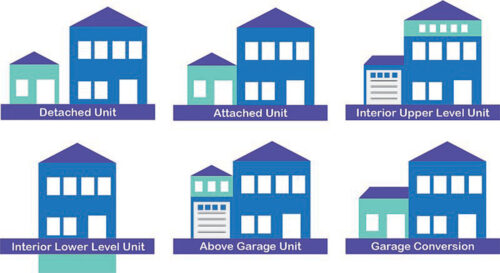
By MARK SARDELLA
WAKEFIELD — As of this week, accessory dwelling units (ADUs) are allowed by right in single-family zoning districts across most of Massachusetts, under a law Gov. Maura Healey signed in August.
The Wakefield Planning Board and Senior Planner Samantha Elliott have been busy crafting an amendment to the local Zoning Bylaws that will give the town some limited control over ADUs.
The Executive Office of Housing and Livable Communities has drafted regulations to accompany the state ADU law, allowing cities and towns to impose “reasonable restrictions and requirements.” The regulations allow municipalities some control over site plan review, short-term rentals, regulations concerning septic systems, how far back the buildings can be from the road as well as bulk and height of structures.
The Planning Board discussed the draft local ADU zoning amendment at last week’s meeting and set dates for public forums/info sessions on Feb. 11 and March 11 as well as a required public hearing on April 8.
As a formality, they also voted to send the draft amendment to the Town Council. The Town Council then needs to refer it back to the Planning Board for a formal public hearing.
Elliott said that she had updated the draft amendment based on the board’s previous comments. She also got feedback from department heads (DPW, Engineering, Building Department, Police and Fire) and spoke to Town Counsel Thomas Mullen about the draft amendment.
She noted that the state allows the town to require a Special Permit if the residence requesting and ADU is in a flood plain or an aquifer protection overlay district. Also any ADU that proposes off-street parking is subject to local site plan review by the Zoning Board of Appeals.
Under the local amendment, any lot less than 10,000 square feet in area shall be permitted to construct an ADU, attached or detached, with minimum setback of no less than five feet from the side and rear yards and a minimum of five feet from other buildings.
No parking is required for ADUs constructed on a lot within a half mile radius of any transit station. One space per unit must be provided on-site if all portions of the lot are located outside of a half mile radius from a transit station.
The full draft of the local ADU zoning amendment is available for review on the Planning Board’s section of the town web site, under the heading “Current Projects.”
Planning Board member Matthew Lowry said that he was concerned that the process was “much too rushed.” He was worried that the amendment would get voted down at Town Meeting if people feel that it has been thrust upon them without much opportunity for comment.
“There is a certain segment that says, ‘I don’t want anyone telling me what to do,’ and they will vote that way,” Lowry said. “A lot of people don’t get involved except to say ‘No’ to everything.”
Elliott noted that the ADU amendment had been on the agenda for the previous two Planning Board meetings, so the public has had an opportunity to weigh in.
She was also concerned that if the amendment didn’t get done in time for the May 5 Annual Town Meeting, it would open up a longer window where ADUs could be built without any real local oversight. She told the board that there are already people lined up for permits and the town can’t control anything until it passes its own amendment, as long as applicants for ADUs comply with the state version of the law.
Board member Kevin York asked if the amendment could be posted on the town’s website. Elliott noted that it has been on the website for some time.
Ultimately, the Planning Board voted to forward the draft bylaw to the Town Council so that the Town Council can formally refer it back to the Planning Board for the required public hearing.
The Planning Board has to send the final version back to the Town Council by March 20 in order for it to be placed on the the May 5 Annual Town Meeting warrant.
The board also set the dates for two public forums/information sessions on Feb. 11 (virtual) and March 11 (virtual and in-person). The formal public hearing will take place on April 8.
